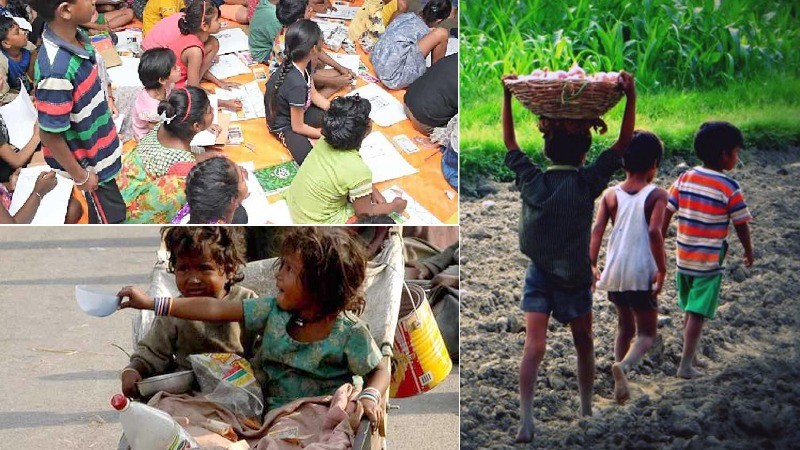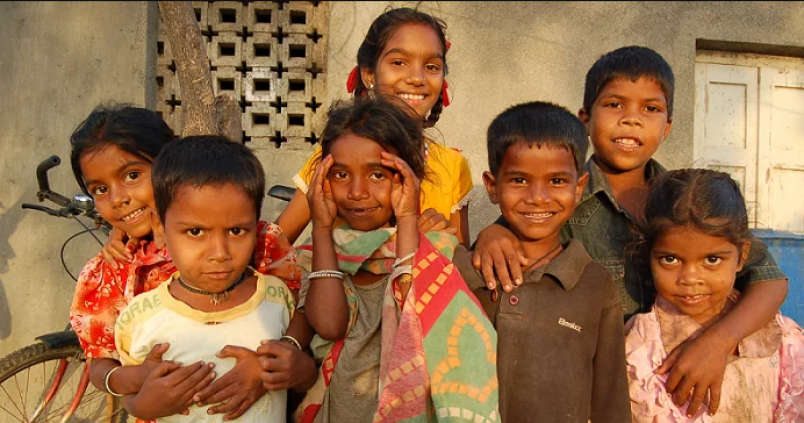
Child Rights are a part of Human rights. These are the basic rights of children under the age of 18 years. They must have access to food, clean drinking water, primary education, basic healthcare, and physical protection without any discrimination on any basis. Poverty, Illiteracy, Unemployment, border conflicts, and some prevalent cultural practices hinder children's rights. Children, being the most vulnerable, are under a constant threat, especially in this age of war. These days, children are more exposed to sexual abuse, violence (domestic as well as online), trafficking, and hazardous labor. Here is a detailed outlook on the UN Convention on the Rights of the Child, the role and importance of the NCPCR in India, child protection laws, and the current status of child protection in Madhya Pradesh.
_6866319646d63.jpg) Dr. Divya Gupta, Member of the National Commission of Child Rights (NCPCR)
Dr. Divya Gupta, Member of the National Commission of Child Rights (NCPCR)
According to Dr. Divya Gupta, a member of the National Commission for Protection of Child Rights (NCPCR) for Child Health and Well-being, the conditions for children vary between urban and Rural India. If we talk about the rural areas, trafficking and malnutrition are very common. While in Urban areas, children of poor migrants residing in slums are more prone to trafficking and drug abuse. Poverty, unemployment, lack of education, and proper resources are the reasons behind these issues faced by children.
_6868c0ca789cd.jpg) Ex-DGP IPS Nirmal Kaur finds that the immigrant population settled in India is leading to a rise in child labor
Ex-DGP IPS Nirmal Kaur finds that the immigrant population settled in India is leading to a rise in child labor
Ex-DGP IPS Nirmal Kaur, who is a retired Director General (DG) of Police, Jharkhand, says, "The tribes don't compromise child rights. You won't find their children working. But you will surely find the local communities sending their children to labor or to run errands for the family. And it becomes even tougher with the immigrants, such as the Bangladeshi, settled here. When you question them, the entire community stands firm on wanting children to work. Poverty and illiteracy trigger violation of child rights."
Senior Journalist Priyanka Kaushal adds, "The condition is even worse in regions hit by terrorism. A child here must have all the rights and privileges to a good life, just like any other normal kid. But they don't. In fact, they do not even have the right to live. When they used to go to school, the naxalites killed them. The scenario has changed a bit, still, there is a lingering threat to them."
The United Nations Organization (UNO) also provides a Convention on the Rights of the Child, which is signed by countries that have promised to protect children. It is about who a child is, their rights, and the responsibilities of the Governments to protect them. No child can be discriminated against on any basis, and must be taken care of in their best interests. As it talks about the fundamentals for a child, the Convention also served as a foundation once, in 1989. But, is there any advancement or a change that makes it fit in the contemporary world?
Dr. Divya Gupta says, "It is time that the UN abolishes this age-old and redundant charter. It just wants everyone to abide by its principles, but in reality, the UNO has not lived up to its standards. The organization only wages its supremacy. It could not even amend the convention that could fit in the present times. There are children of war who are struggling in Israel-Palestine and Ukraine, have been orphaned, are not able to study due to poverty, and are only suffering. What is the UN doing for them?"
Role of the National Commission
The National Commission for Protection of Child Rights (NCPCR) plays a vital role in ensuring that no child in the country is deprived of his/her rights. It is aware, agile, and able. Here is its role, work, and importance:
Examine, review, inspect, and undertake all matters related to children and safeguarding their rights.
Look into the matters where children's enjoyment of rights is affected, and where they need special care and attention.
Undertake a formal investigation wherever the concern is expressed.
NCPCR is a statutory body that can summon anybody involved in unfair practices against children and initiate action. It can inquire into complaints and take suo motu action in certain matters.
Present working reports to the Central Government, annually or at a fixed interval decided.
The NCPCR has been a part of the UN's Hague treaty. It also has its own National Charter, which it strongly adheres to.
Emphasizing the role of the NCPCR, Dr. Divya Gupta says, "NCPCR reaches out to aspirational districts and blocks, reaching out in the distant parts of the country. We provide livelihoods to the adult population under the Mudra Yojana, so that the child's education is not compromised. This is to ensure that the issue is resolved there itself, along with follow-ups. We also "
 We need to save our children and their childhood (Image source: CRY Organization)
We need to save our children and their childhood (Image source: CRY Organization)
A child in India has the right to survival, protection, education, health, participation, development, a safe environment, their identity and expression, that too without any discrimination. To safeguard these and protect children from being exploited, abused, or neglected, various rules and regulations are prevalent in India. The four main laws include:
Juvenile Justice (Care and Protection) Act 2000, amended in 2015
The Prohibition of Child Marriage Act 2006
The Protection of Children from Sexual Offences Act 2012 (commonly referred to as the POSCO Act)
The Child Labor Prohibition and Regulation Act 1986, amended in 2016
But the implementation of these laws is yet another question. Most of the time, crime is committed at home and in localities, but goes unreported.
Madhya Pradesh still lags when it comes to child rights. We can still find children begging, engaged in child labor, or abused. There is malnutrition, illegal trafficking, and drugs that are proving dangerous for a child.
Dr Divya Gupta cites that the major concern among children in Madhya Pradesh is malnutrition. She fumes, "Madhya Pradesh needs to work more efficiently for children. Malnutrition has gripped states like Madhya Pradesh, Chhattisgarh, Jharkhand, and Bihar. There is a need to ensure stringent efforts in this direction. Moreover, the state has a poor implementation, which needs to be addressed and worked upon."
The question is, are children protected? Are child protection rights implemented properly? Dr. Divya Gupta adds, "Implementation is a major setback. The Indian Constitution has laid down enough laws, and even the Government comes up with various schemes and policies, but the problem is with implementation on the ground. Unless there is proper implementation, laws and schemes do not hold any importance. Just like NCPCR initiates, those working at the State and District levels shall also come forward and implement."
_6868a774c1efd.jpg) Priyanka Kaushal stresses the society's role in ensuring the protection of child rights
Priyanka Kaushal stresses the society's role in ensuring the protection of child rights
Priyanka Kaushal affirms, "We talk about laws and policies. But what we forget is that society also upholds a responsibility. We do not stop by to ask a small child why he is working? The Government has given him the right to education, but is it reaching him? Does the child go to study? There is no meaning to rights until they are not reached for the ones meant for."
Nirmal Kaur states, "Law and order are in place. But when society comes together as a whole against such practices, then only we can eliminate them. The Bangladeshi refugees have moved to almost all parts of the country with identity cards and serve as cheap labor. The condition is such that a six-year-old child is making punctures and a 13-year-old girl is cleaning dishes at someone's home. Those who employ them are encouraging it."
Child rights and their protection are necessary for a country as well as the world. If the children are neglected in any manner, no country can develop or progress. Because the future lies in them, and we cannot ignore this fact. We need to save children and their childhood, so that you do not witness any other 'Chhotu' working at a tea stall ever again.